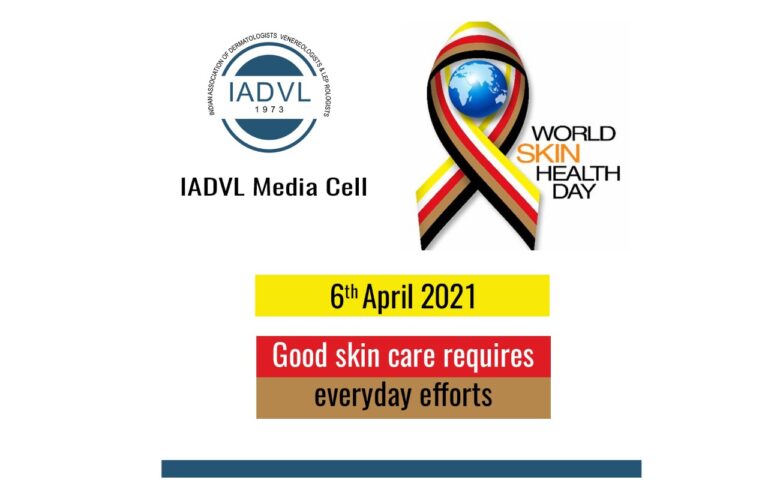
New Delhi [India]: “As the ‘red-faced’ young girl entered my consulting chamber, my diagnosis was already done before she sat on the revolving stool meant for examining patients. As expected the redness on her face was accompanied by a growth of hair too. As anticipated, she denied applying anything on her face for the last few years. After a few minutes of grilling, I managed to get a confession of applications of labelled as well as unlabelled ‘magic fairness formulas’ ‘prescribed’ by caring aunts, friends, beauticians, chemists, newspaper full-page ads, etc. I was the fourth qualified dermatologist in the town who was trying to ‘convince’ her that all those ‘expert fairness bits of advice’ were unfair for her ‘not so fair dream’ of turning ‘fair and lovely. After half an hour, as she left my chamber with my prescription, I reassured myself to continue the fight with this irrational self-abuse by people, with topical steroids for fairness, pimples, blemishes, fungal infections, etc, etc.”
Believe me, this is a routine scenario seen in most dermatology clinics, all over India. An urge or obsession to get a lighter tone of the skin is commonly seen due to social ‘stigma’ which wrongly equates beauty or healthy skin with fairness. Unethical promotion of fairness creams (some even containing medicines like steroids) through advertisements by reputed film personalities add to this misconception of fair skin being equivalent to beautiful or healthy skin. The rising incidence of resistant and difficult-to-treat fungal infection of the skin (ringworm) is another fallout of irrational self-use of topical combination creams containing steroids.
It has been observed that even in the twenty-first century, the general population is not very aware of many skin conditions. There are a lot of myths surrounding conditions like vitiligo, leprosy, psoriasis, eczemas, acne, hair loss, etc. These myths may lead to psychological stress and even adverse effects if inappropriate treatment is done due to a lack of knowledge.
Indian Association of Dermatologists, Venereologists & Leprologists (IADVL) observed 6th April as World Skin Health Day to create general awareness about skincare and prevention of abuse of skin with creams. It also aims to create awareness about common skin conditions like vitiligo, leprosy, psoriasis to reduce the social stigma associated with these mostly benign, common conditions.
Some highlights about general skin health follow, which should be remembered by all of us.
1. Skin is the largest organ of the human body. It is the outermost covering that protects internal structures, maintains body temperature, has a sensory function, and synthesizes vitamin D. Thus it is one of the important organs of our body, of which proper care should be taken.
2. Skin color is determined by the amount of melanin pigment produced by melanocytes in the skin, which in turn depends upon genetic, racial predisposition, geographical location, and exposure to sunlight. It cannot be changed permanently, although protection from sunlight may prevent tanning to a certain extent.
3. No treatment can change skin colour permanently. No medicated cream should be used for fairness without a dermatologist’s guidance. It can cause long-term skin damage.
4. Soaps cannot change skin texture or colour. It is just used to cleanse skin surfaces. A person with dry skin should use milder cleansers or no soaps. Coconut oil is one of the best emollients for dry skin.
5. A healthy balanced diet, good hydration, regular exercise helps to keep skin and hair healthy. The best natural method to make skin glow is having lots of green vegetables, salads, dry fruits, fruits, adequate night sleep, and minimal cosmetics.
6. Vitiligo is just a cosmetic condition presenting with milky white patches on the skin, due to the absence of melanin pigment production. It can be controlled by medicines. It generally has no serious underlying associations.
7. Leprosy is a completely curable infection that may have light-colored patches or red patches with loss of sensation.
8. Psoriasis is a chronic but controllable condition with red patches and scaling on the skin. It is not contagious or a very serious disease.
9. Acne or pimples are due to normal age-related hormonal changes. No creams should be applied without a dermatologist’s advice. This age-related change may require long-term treatment.
10. Every day about one hundred hair are lost as a part of the normal hair cycle. Only if more than that is lost, it needs to be investigated and treated. Stress, nutritional Anaemia, and genetic predisposition are few common causes of hair loss.
11. Skin is a mirror of general health. If any rash occurs or its appearance alters, a dermatologist should be consulted to rule out any underlying disease if any.
Regards,
· Dr Jagdish Sakhiya
Chairperson, IADVL Media Cell
· Dr Rashmi Sharma
Convener, IADVL Media Cell
· Dr Jayadev Betkerur
President, IADVL
· Dr Feroz K
Hon Secretary-General, IADVL
TEAM IADVL MEDIA CELL